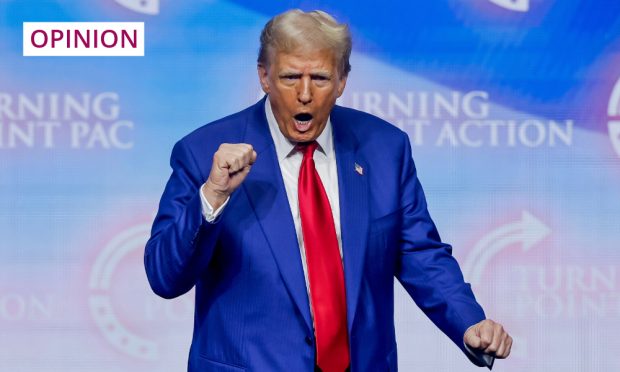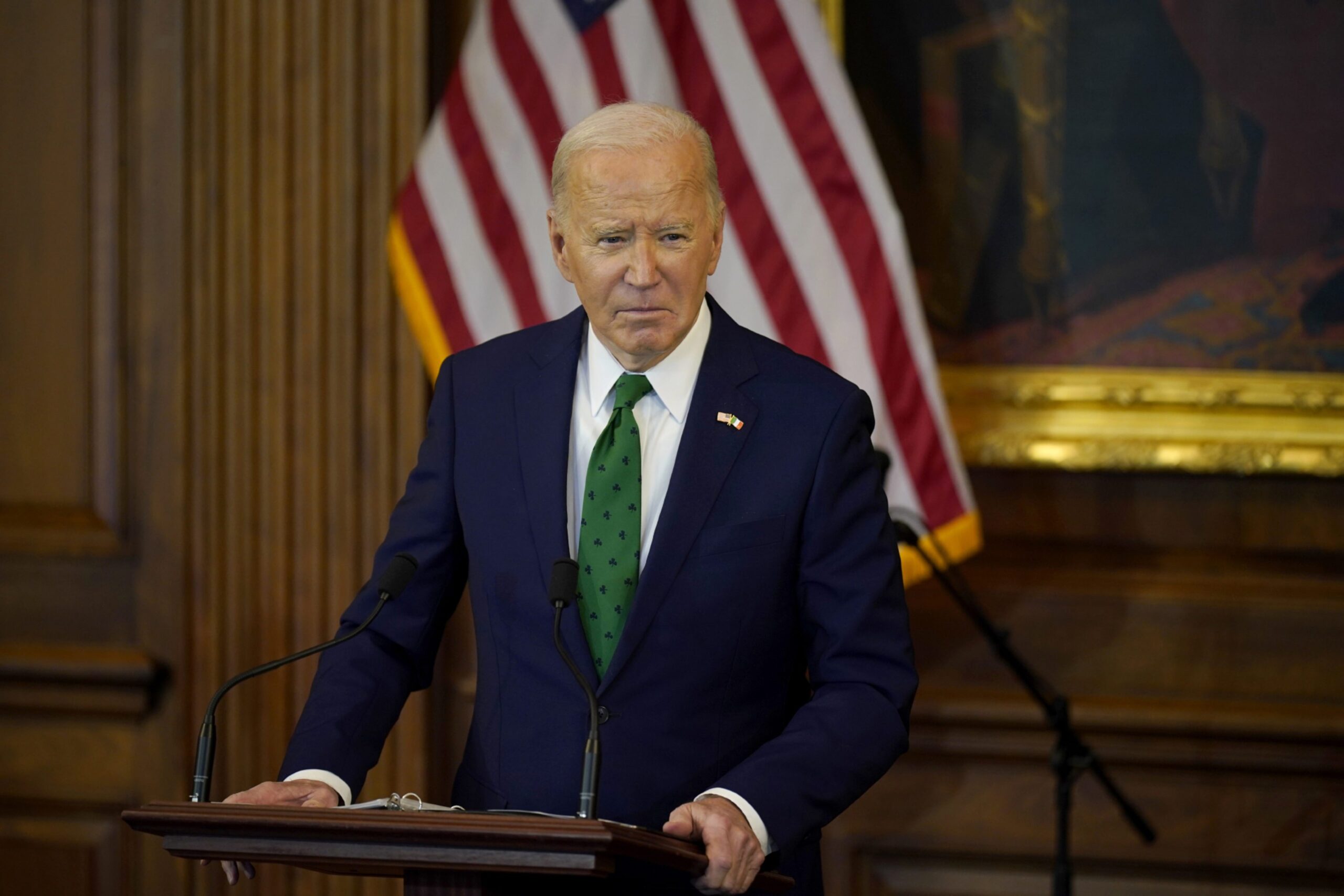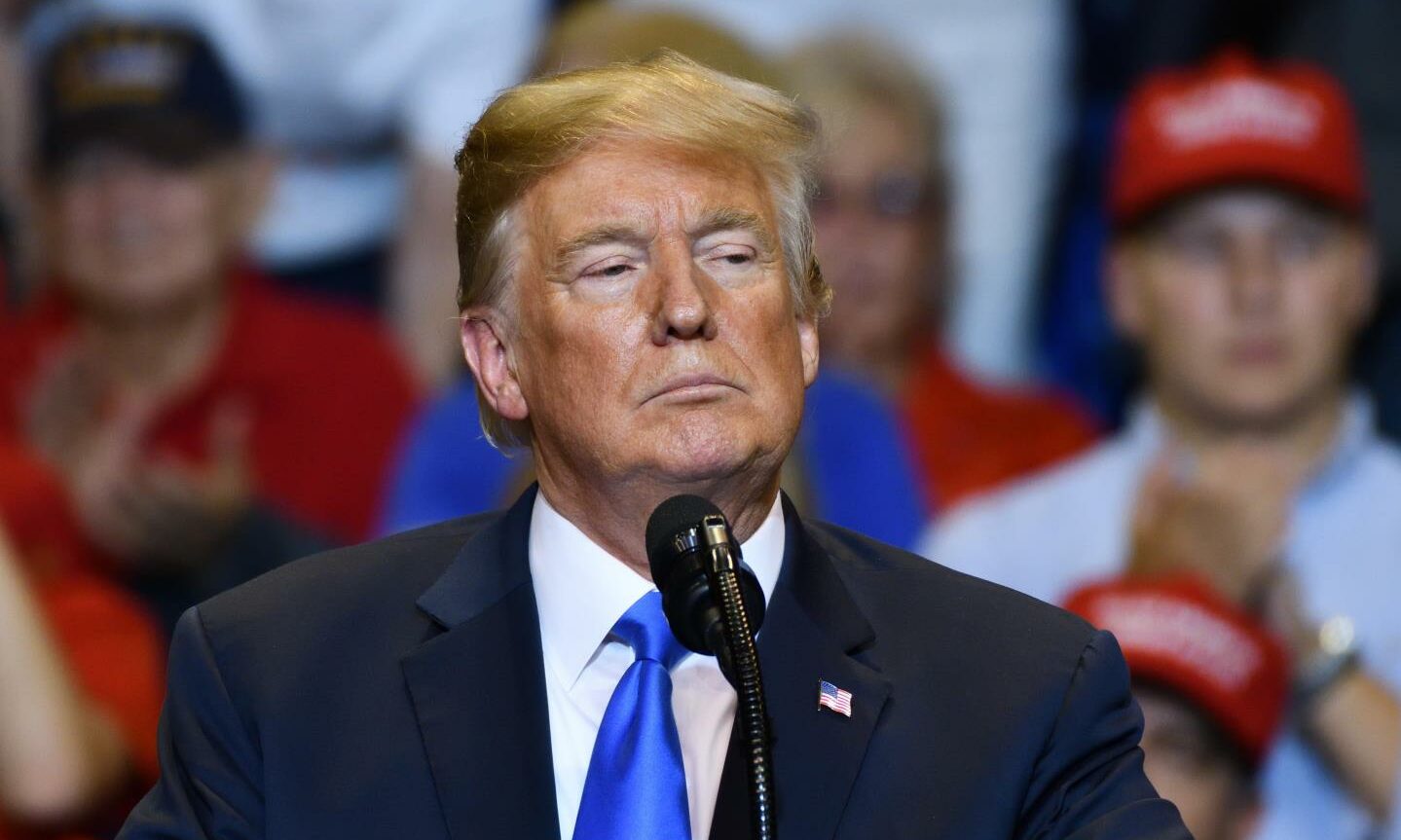Donald Trump’s victory in the 2016 presidential election was a tremendous shock, but there was always that lingering hope that it was an aberration.
Surely, America would come to its senses and see this half-baked reality TV star for what he really was?
The 2020 election gave us hope with the return of a grown-up – a very grown-up, as it turned out – man to the White House.
But four years later, Trump is back, and it is President Biden, in fact, who has proved the aberration.
Far from coming to its senses, America has instead embraced the madness.
It is easy in the immediate aftermath of an election to overstate its importance.
End of an era
How many commentators, for instance, suggested the 2019 general election spelled the end of the Labour Party as a viable political force, only for it to win a landslide majority five years later?
And yet there is no doubt this presidential election does, sadly, feel epoch defining.
Just as the first election of Franklin Delano Roosevelt in 1932 was the beginning of the end for US isolationism and ushered in the American Century, so too does Trump’s second victory appear to have brought that era to a definitive close.
Like it or not, Trump has now been the dominant figure of US politics for almost a decade, and his ideas and attitudes have permeated not just the Republican Party, but the Democratic Party too.
And his remarkable political comeback will only accentuate this.
For the Republicans, purged of most sensible voices, Trump is now a Messiah-like figure who cheated death to return America to its founding principles.
To go against his world view would, in the eyes of many, be akin to going against God.
But even Democrats, reeling after an unexpected and chastening defeat, may well come to believe that their political recovery lies in embracing social conservatism or economic protectionism.
After all, far from ditching Trump’s tariff policies, President Biden embraced them in office.
At the very least, it seems likely that Trump’s transactional view of international relations, and his protectionist economic policy, is now likely to become the centre of gravity once again in US political thinking, just as it was in the days before FDR.
‘It will make us poorer and less safe’
The consequences of this Trumpian epoch will be severe.
Most immediately, the brave people of Ukraine will probably be forced into some form of surrender, which will only serve to vindicate and embolden Russian aggression.
Europe, with a belligerent Vladimir Putin on its borders and a shaky economic recovery at home, will be isolated, forced to defend and recover itself alone.
The global economy, still suffering from conflict and pandemic-induced chaos, will once again be disrupted by trade wars.
This might all sound like high politics, irrelevant to you and me.
But it will actually have significant short and long-term consequences for the UK and Scotland, making us all poorer and less safe.
The Trump era will embolden dictators and non-state actors who threaten our borders and way of life.
It will lead to further inaction and delay on systemic threats, not least climate change, the consequences of which we are already wrestling with.
Impact close to home
More directly, it is almost certain at least some iconic Scottish products – whisky, salmon, shortbread – will become caught in the crossfire of Trump’s tariff policies, just as they did during his first term as president.
Such an outcome would have a direct effect on jobs and businesses in Scotland, with some estimates suggesting Trump’s election could wipe more than one percent of the UK’s already very low growth predictions for 2025.
It is no exaggeration – however absurd it may seem – to think that Trump’s election will have a direct impact on the jobs and pay packets of people in Tayside and Fife.
Perhaps the most difficult aspect of Trump’s re-election is, however, the message it sends about the United States’ place in the world.
Critics of America often deride it as “the world’s policeman” but this has – in recent decades – been its most critical function.
In the years following the Second World War, the United States has been responsible for creating and then maintaining a stable global order.
It did this – of course – by setting the rules, but also (largely) by obeying them too.
The advent of the Trumpian era brings that notion to a definitive close.
Under an emboldened President Trump, the United States will now not only not be a rule maker, but it will also be a rule breaker too.
In such circumstances – and despite all the woolly protestations about “the special relationship” – the UK, short of going cap-in-hand to the EU, is now largely on its own.
And unlike in 2016, it really doesn’t feel like there is a good way back.














Conversation